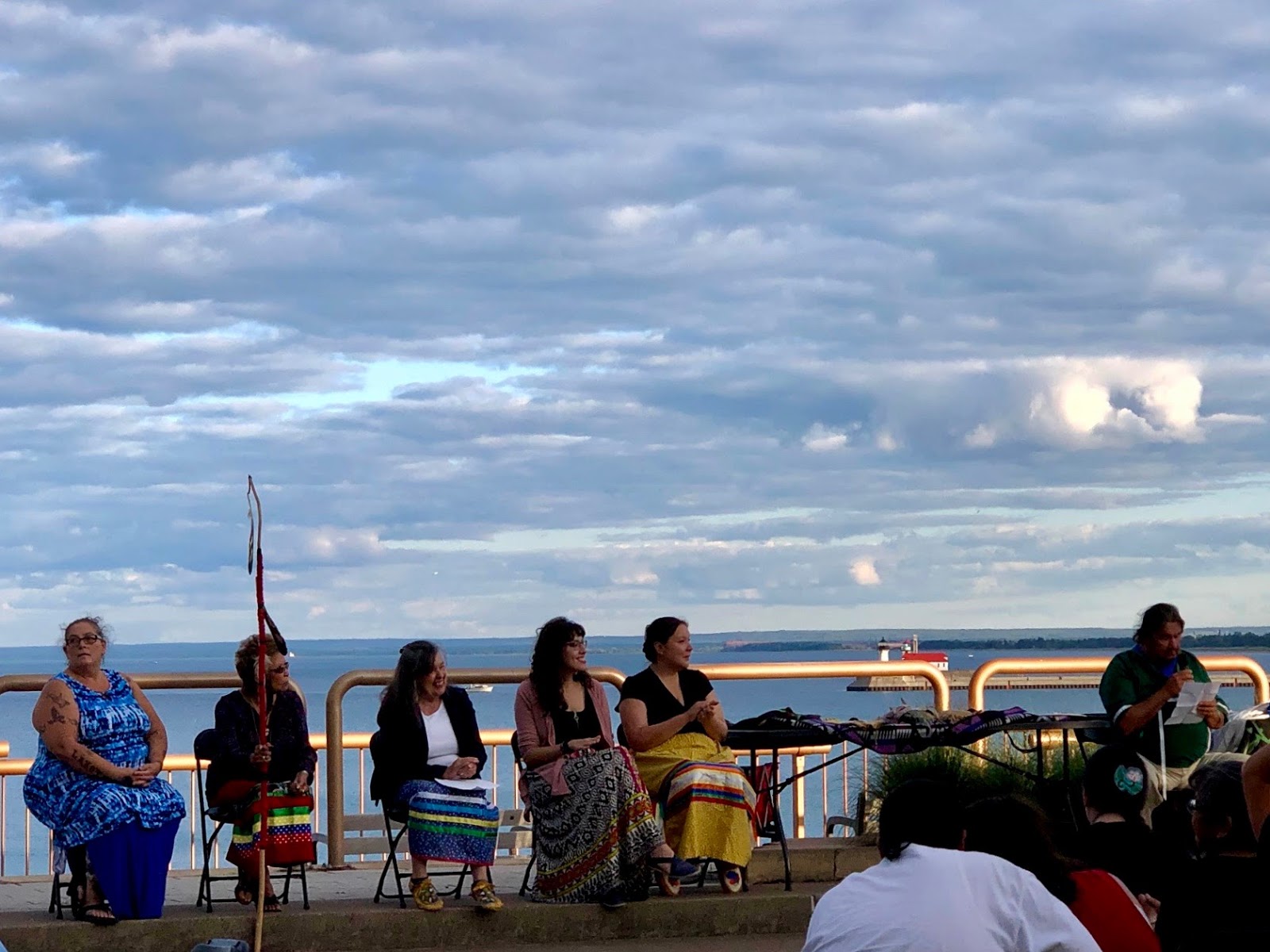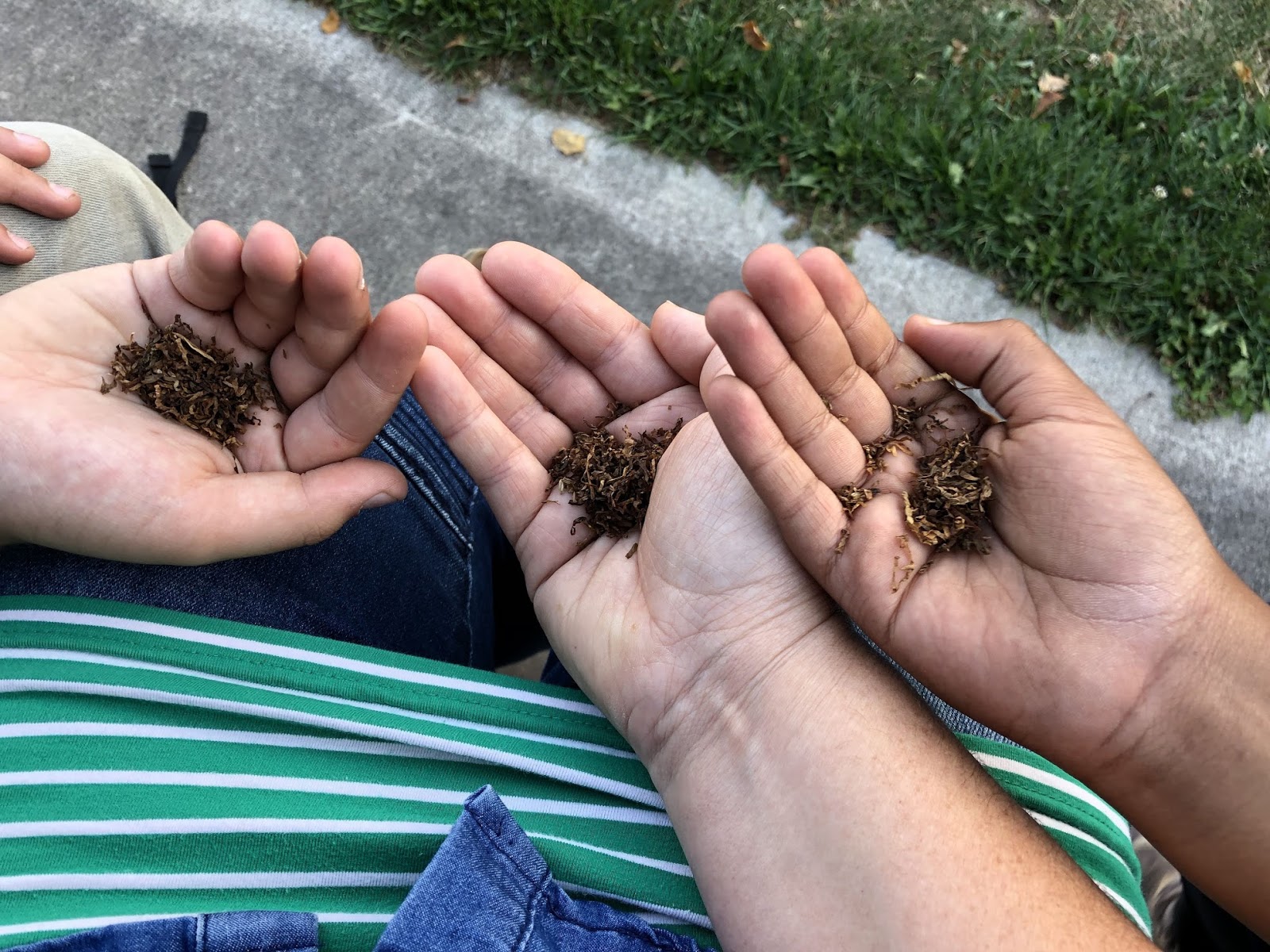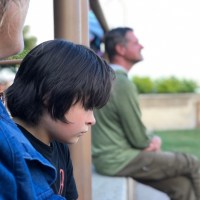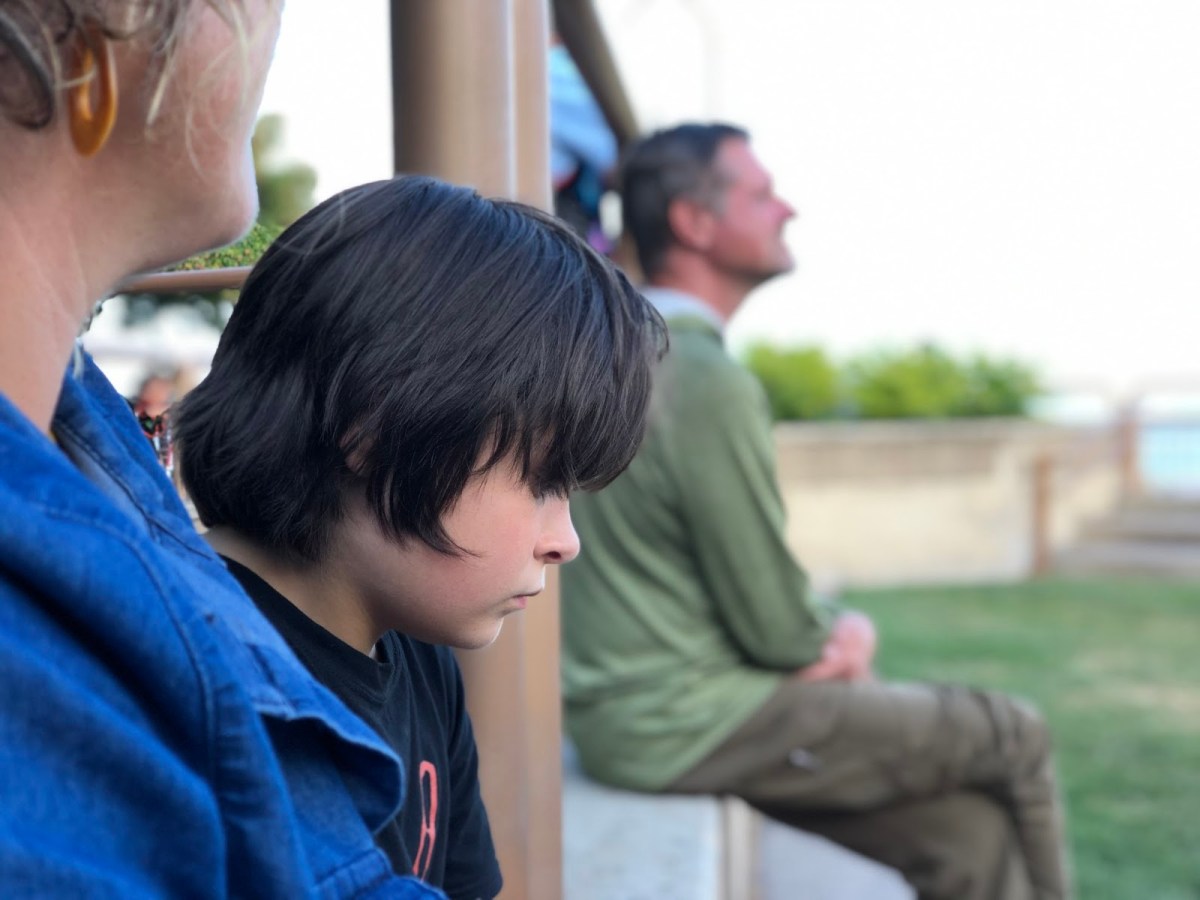“When the drums start to bless this evening, put what’s in your heart into these tobacco leaves. The thoughts in your mind, the things your soul wants, and your hopes for each other.”
I stood on the shores of Lake Superior with my two sons, cupping tobacco leaves in our palms. We had come for a ceremony renaming this city park to Gichi-Ode’Akiing (formerly Lake Place Park), to acknowledge its Native American Anishinaabe roots and the people who first dwelled on this land.
I’ve walked through this patch of park in my city for 20 years, along with skateboarders, dog walkers, and shoppers. I had no idea that this land along the shores of Lake Superior had a story to tell—or that this land was fraught with tears and struggle.

What does it matter that we listen to each other’s stories?
What does it feel like to be erased or unseen?
What does it say to our indigenous brothers and sisters when we take the names of their places—places that are dear to them—and replace them with names of our own?
Names tell us where we are and whose we are.
Names tell us where we came from and remind us of our story.
So a park is renamed to remember its roots, so Anishinaabe descendants do not go unseen. So their story is told.
Changing the name does not resolve the complicated legacy of between indigenous Americans and those of us whose ancestors came here much later.
But now, at least, we will share a common memory.
Common memory. It’s the shared memory, the collective tellings of history by many different voices, from many different perspectives. It allows space for all voices, so that no one group holds all the power in telling the history.

We stood in Gichi-Ode’Akiing, our hands cradling tobacco leaves, the steady heartbeat of drums and the Ojibwa language washing over us. I wasn’t sure what we would do with the tobacco—throw it in the lake or take it home? But then an Elder spoke.
“We are going to take all this tobacco back and put it together. Because we belong to each other, and now when it comes together it has pieces of us all in it. We need all of us to bless this place and become connected to each other again. To be brothers and sisters.”
The pieces of us all—all races, nationalities, backgrounds, and beliefs—woven together in this newly renamed place. Seeing each other fully, wholly.
It’s one small step on the way to something better.



